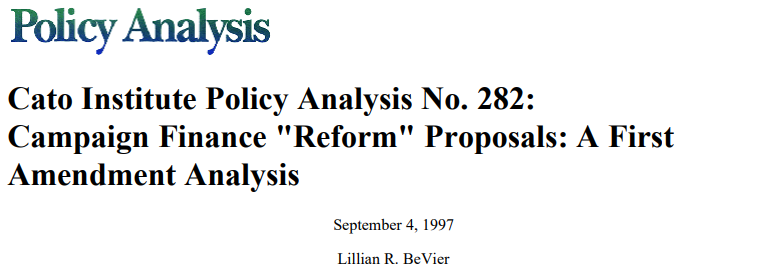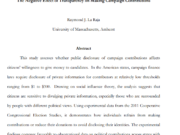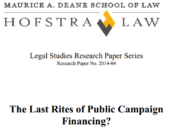In the wake of recent reports of questionable campaign finance practices have come ever more draconian proposals to “reform” the campaign finance system. Those proposals pose a disturbing threat to the individual political freedom guaranteed by the Constitution. Under current precedents, none of them could survive a First Amendment challenge.
In Buckley v. Valeo (1976), the Supreme Court affirmed that giving money to and spending money on political campaigns is a core First Amendment activity. Accordingly, regulations of political contributions and expenditures will not be sustained unless justified by a compelling state interest and crafted to achieve their objective by the least restrictive means.
Current proposals to regulate campaign finance practices cannot survive the kind of scrutiny that the First Amendment requires. This study demonstrates that the ban on political action committees, the PAC ban fallback provisions, the “voluntary” spending limits, the restrictions on soft money, the regulation of issue advocacy, and the proposals to expand the enforcement powers for the Federal Election Commission all substantially infringe on core First Amendment freedoms, but none serves a compelling interest with the least restrictive means. And the proposal that broadcasters be required to provide free TV time to federal candidates is constitutionally insupportable.
The shortcomings of current “reform” proposals are no small matter, given the First Amendment’s crucial historical role in protecting our right to self-government and in sustaining liberty. For the proposals to pass constitutional muster, the First Amendment would have to be itself “amended” by judicial fiat.














